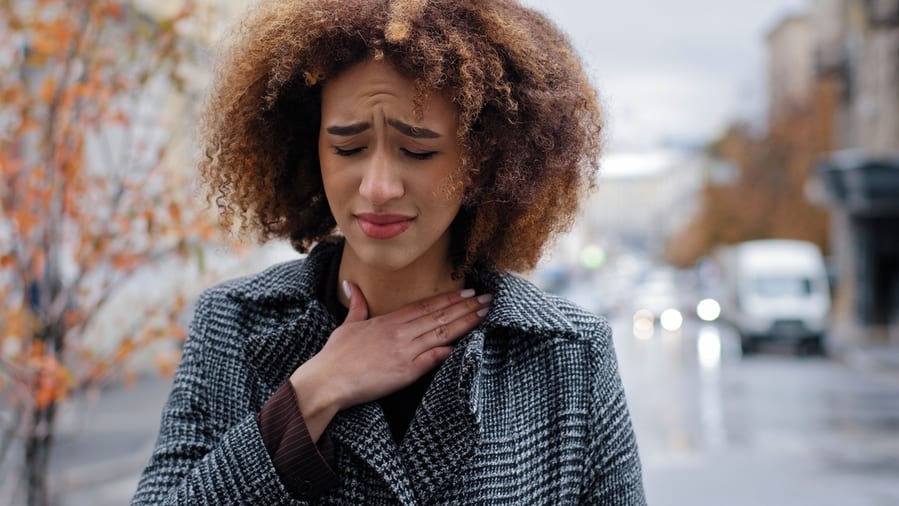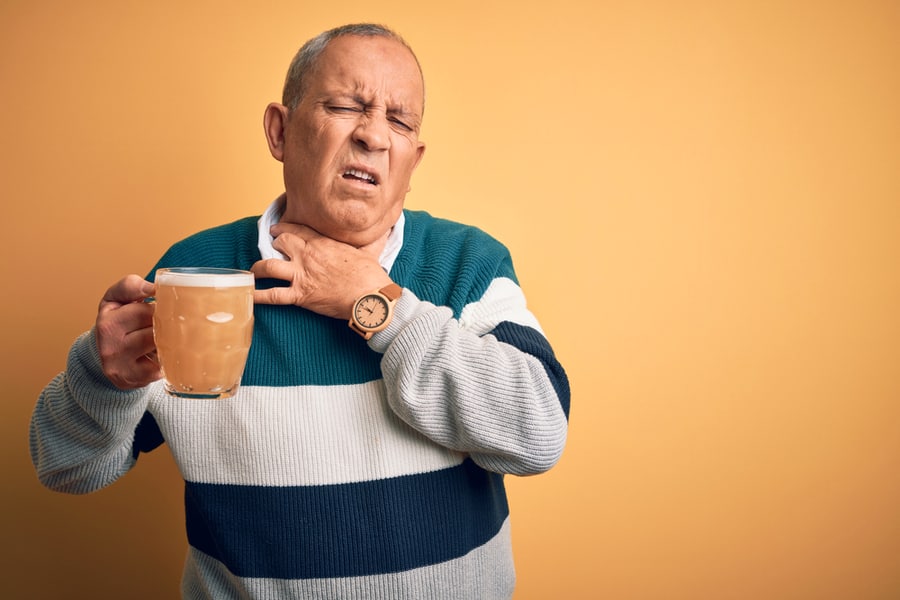
Drinking and partying have become the norm, no matter the type or occasion it is accompanied by alcohol consumption, music, and partying late into the night. You can always expect to get carried away by the ambiance and overextend yourself.
Fatigue and hangover are the expected results, followed by partying hard. However, at other times, you may end up with a husky voice or lose it. Many consider it a common occurrence as it may come from screaming their lungs out, but what is the case here?
Which brings us to the question, why do I lose my voice when I drink?
The primary reason behind the loss of voice after drinking is the inflammation of your throat muscles. But that’s not the sole factor; the dehydration caused by alcohol consumption and talking too much or too loud combine to overwork your vocal cords, resulting in the loss of voice.
Here we will tell you several underlying reasons why you lose your voice when you drink and what you can do to get it back. So, stay tuned for what’s to come.
Reason for Voice Loss After Drinking

The cause of voice loss due to alcohol is linked with the effects followed by alcohol consumption. Two reasons shed light on why you lose your voice after drinking.
1. Dehydration
Alcohol is a diuretic; hence causes dehydration throughout the entire body, and the effect is the most prominent on the mouth and throat. This dehydration hinders the functions of vocal cords.
Optimal hydration is necessary to maintain the smooth vibration in vocal cords without overstressing them.
Otherwise, your vocal cords have to put in more effort, which can cause them to overwork and inflammation occurs. It results in the constriction of the airway, in turn, breathing issues or husky or no voice.
2. Excess Mucus Production
The second part results in the production of excess mucus and a build-up of phlegm.
The mucus produced here irritates your vocal cords, and you may frequently clear your throat as you talk. Also, you may even feel stuffy as you drink and repeat the same action.
Therefore, it can exacerbate dormant viral or bacterial infections, leading to voice loss or even a cold/flu.
If you have throat issues and drinking makes you lose your voice every time, it’s best to avoid drinking, as it can cause permanent complications in the long run.
How To Treat Your Voice Loss After Drinking

Unlike the reason for voice loss, you have several options to treat your voice. The remedy you should consider depends on your body’s condition and immune system. Let’s start from the most common to the most potent.
1. Relax Your Throat Muscles (Rest)
This methodology holds for people with naturally sturdy immune systems who can recover quickly. This category of people will rarely encounter the problem of losing their voice, and the only case may arise due to viral infections, which may worsen because of alcohol intake.
Here, relaxing your throat muscles (resting) helps to bring them back to their optimum condition. Though it isn’t the fastest method, it can help you focus on other things from the hustle and bustle of life.
2. Drinking Plenty of Water
This next part is more related to prevention rather than treatment.
This prevention is done by sipping a small amount of water to keep your vocal cords hydrated during drinking alcohol and partying. It prevents your vocal cords from over-exertion and inflammation.
3. Rinsing Your Mouth With Saltwater or Eating Honey
Rinsing your mouth with saltwater and gargling with warm water and a pinch of salt can help you to get your voice back, especially if the cause is the inflammation of your vocal cords.
Having a honey tea or a teaspoon of raw honey without sugar can help you ease your throat muscles and even tackle a cold or flu. Honey has antibacterial characteristics along with many other beneficial effects.
4. Breathing In Humid Air
This procedure is the traditional method and is still used to treat sore throats and common colds, which also brings us to this method. You can always use the modern way, i.e., a humidifier, but the traditional way of breathing in steam from a pot works as well.
5. Taking Meds/Lozenges
The last option before going to your doctor is to take throat lozenges, which can help lubricate your throat.
You should see your doctor and get a prescription and medicine if nothing else works.
Conclusion
Lastly, drinking may or may not result in the loss of voice. It depends on various conditions and your susceptibility to bacterial infections, i.e., the immune system.
The reason behind your voice loss can fall between the inflammation caused by dehydration/dryness or the excessive generation of mucus, which irritates your vocal cords and makes them swell.
Also, overworking your throat could be another reason for voice loss, which is linked indirectly to drinking.
Frequently Asked Questions
It’s relatively common to start worrying when you lose your voice or get it husky. If you use care, you can see it improving within the next two-three days, but if the problem persists for over two weeks, you should get an appointment settled with your doctor.
The answer is both. Alcohol can dehydrate your body, leading to more dryness in your vocal cords, which inflames your throat muscles. The same can happen with a viral infection, which can lead to the same condition due to the presence of viruses and bacteria (irritants).
People who are in the profession of talking a lot are the most susceptible ones. These may include; teachers, call center people, and so on.









